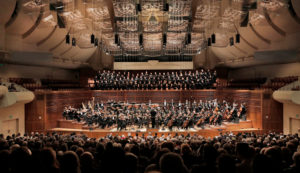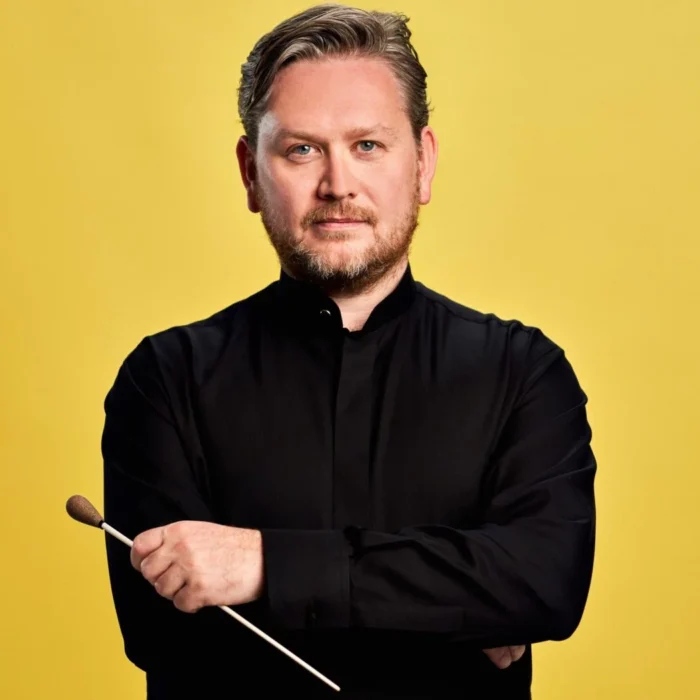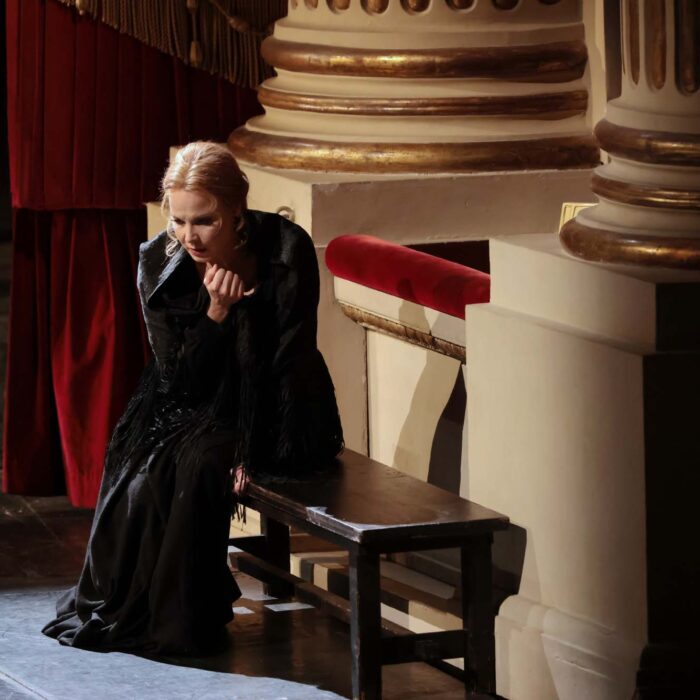
San Francisco Symphony Orchestra 2019-20 Review: Handel’s ‘Messiah’
A Small Jewel Starring Lauren Snouffer, Ben Bliss, Aryeh Nussbaum Cohen, Adam Lau
By Lois Silverstein(source: San Francisco Symphony Official Website)
San Francisco once again hosted Handel’s “Messiah,” in time for the holidays. Conducted by Ragnar Bohlin, by the San Francisco Chorus, the San Francisco chamber ensemble, and four excellent soloists, Theshowcase was musically vibrant, satisfying and festive.
If you ever thought the “Halleiuah Chorus” was “all the Messiah,” all you had to do was to sit before this lively performance and savor the roster of ” hits,” including “Every valley shall be exalted,” “For unto us a child is born,” “How beautiful are the feet,” “The Trumpet shall sound.” Then you would truly know what this marvelous work has to offer. What makes it all so appealing is just that: each text and song, whether performed solo or in chorus, is not just another block in the celebration of story, but a beautiful and telling piece of music in itself. The whole is a blockbuster, for sure.
Four Fine Soloists
The text was drawn by Charles Jennens, librettist, from several passages of the Bible, Isaiah and Psalms, Matthew and Corinthians, among others. The story goes that Jennens sent the libretto to Handel in 1741, and Handel plunked himself down for 24 days and wrote the entire masterpiece. With Fugues and homophonic song, combined and in solo, instrumental and vocal, his fertile imagination gave birth to the wonder work – the baroque festival of elaboration is nothing short of inspiring.
The orchestra consisted of two oboes, bassoon, two trumpets, timpani, harpsichord and organ, and strings as well as a four-part choir and four soloists.
Soprano Lauren Snouffer sang with elegance and fine range, her diction immaculate, her pitch accurate. Never did she waver, her energetic performance resounding with confident luster and grace. Overall, her notes shone like a strand of pearls.
Countertenor Aryeh Nussbaum Cohen brought his broad melodic line from the first. Fast, dynamic, energetic arpeggios and gorgeous trills characterized his solos, recitative and songs. This was especially notable in his vibrant embroidery of the phrase “Refiner’s Fire.” At moments, his tone swelled with a fine, hooded quality, that added breadth to the line. As with all strong and simple texts, Cohen used eloquent embellishments that tripled and quadrupled meaning. It was as if it echoed far beyond its basic tonality.
Bass Adam Lau provided the ground for the four. He was solid, determined, effective, effortless, and yet, firm and convincing. He sang with conviction and often resonant beauty. We never doubted his determination. And what he sang resolved any doubts we might have about the message he transmitted. He was unshakeable.
Finally, tenor Ben Bliss sang with alacrity and precise, fine tunefulness. The color of his voice provided eloquence and taste and he never veered from his purpose.
Marvelous Musicianship
The Chorus sang with abundance, and with precise diction. Like waves on an ocean, they moved forward and back in long and full lines of sound, their tone round, and never too loud or soft. They were well-coordinated with the orchestra, establishing the music’s contrasts with clarity, dark and bright, brisk and slow. The group’s pianissimo never vied with shiny brass, although during the trumpet solo in Part two, the ensemble’s sound occasionally came on too shrill, although overall, it provided bright and sparkling edge.
Bohlin conducted largely with whole body movement in balletic movements close to the Chorus the whole time, and they with him. They never left each other and that resulted in a fulsomeness that gave power to the performance. The melodiousness of the music poured forth freely, sopranos and baritones and basses, in tandem, soaring and swelling and subsiding as needed.
Bohlin brought out the many variants of high energetic rhythms, once again bringing how Handel composed “Messiah” with an intention to celebrate, rejoice, and behold. One minor point of the Chorus’ performance – a somewhat raggedy rising to sing and sit again. It would sharpen the performance if this were coordinated.
The Orchestra played with lively assurance, a bright asset, guiding and leading as it was needed. The swift sections of imitation even in the long melodic lines did the work of words and it remained a consistent pleasure to hear variation build meaning. Statement after statement across the orchestral sections worked almost as metaphor does, deepening the meaning while condensed expression kept it concise.
“Messiah,” as Handel himself originally called it, was a spirited performance in the San Francisco Symphony and Chorus’s hands. The soloists added jewels to their crown.
All in all it was a fine and joyful musical experience.
Categories
News

